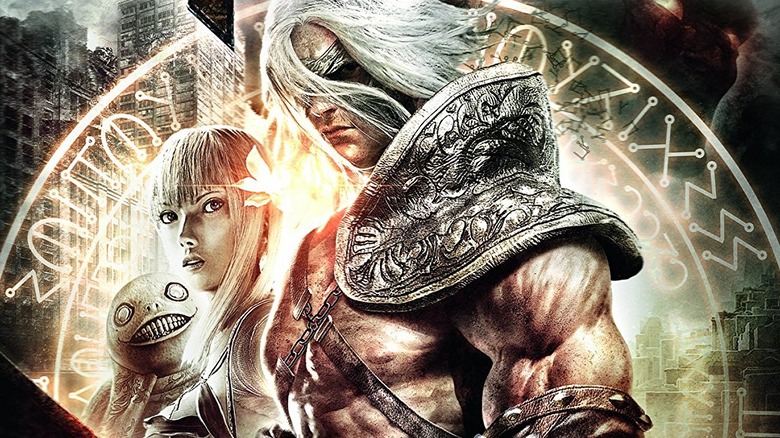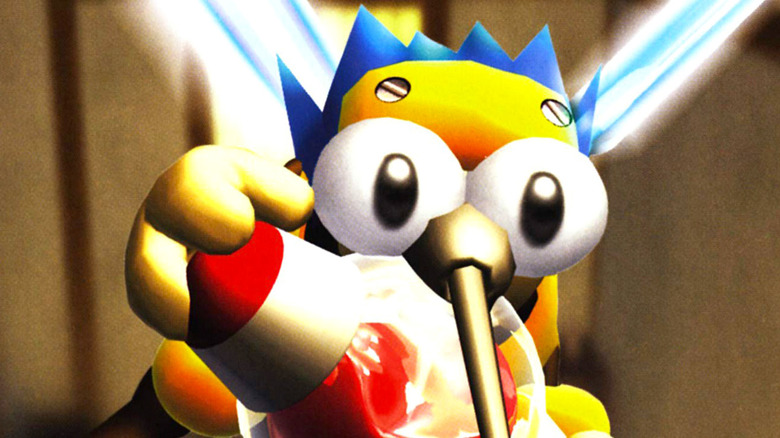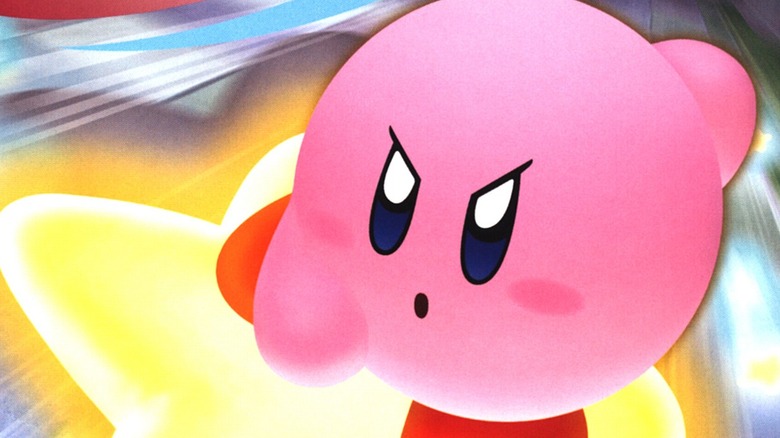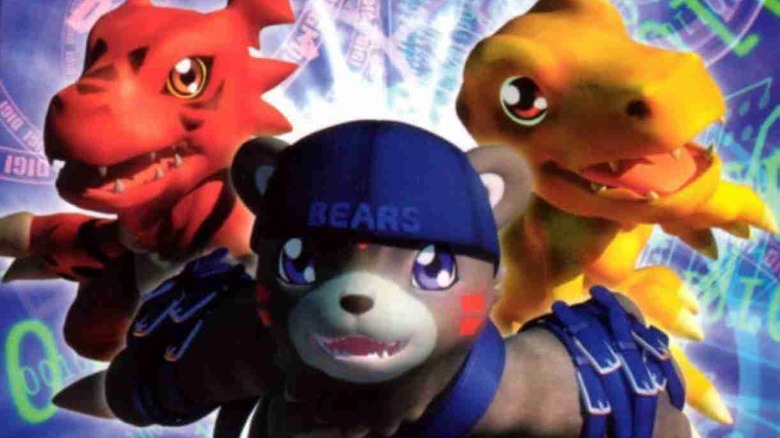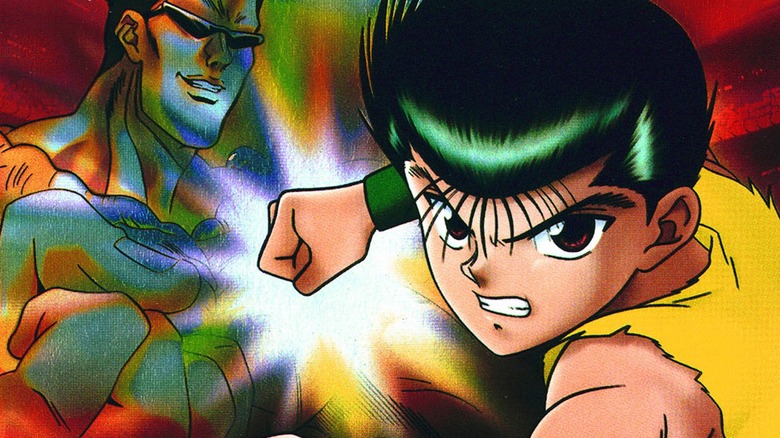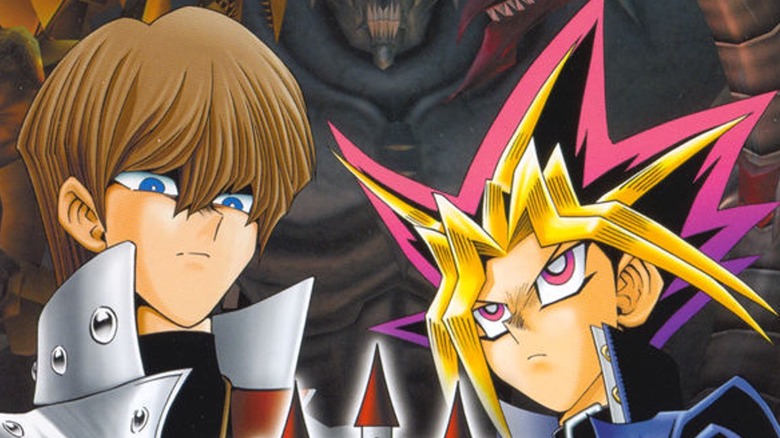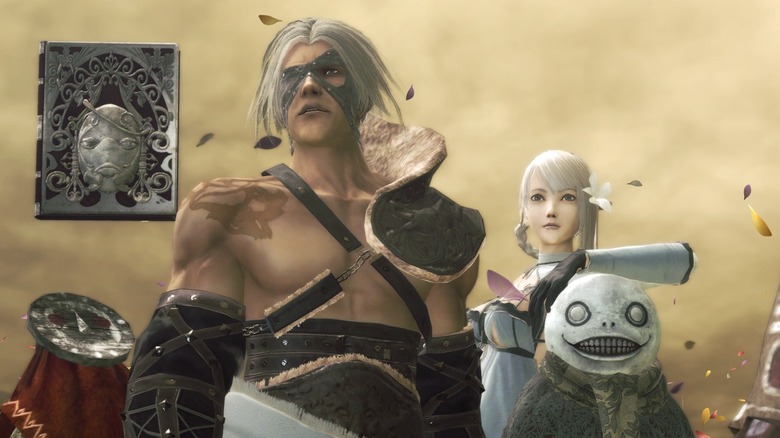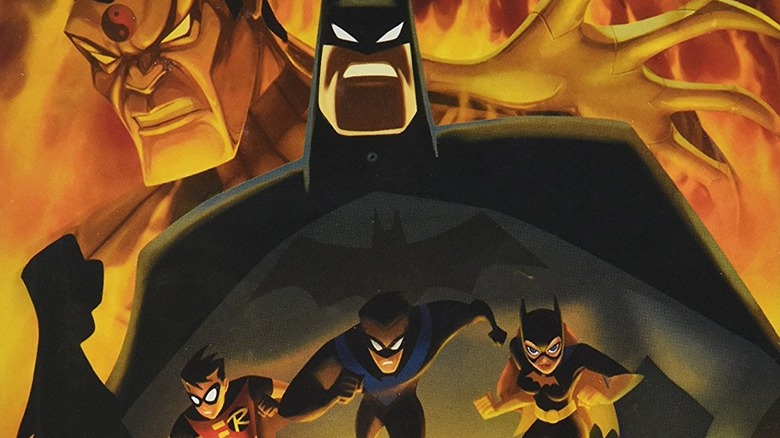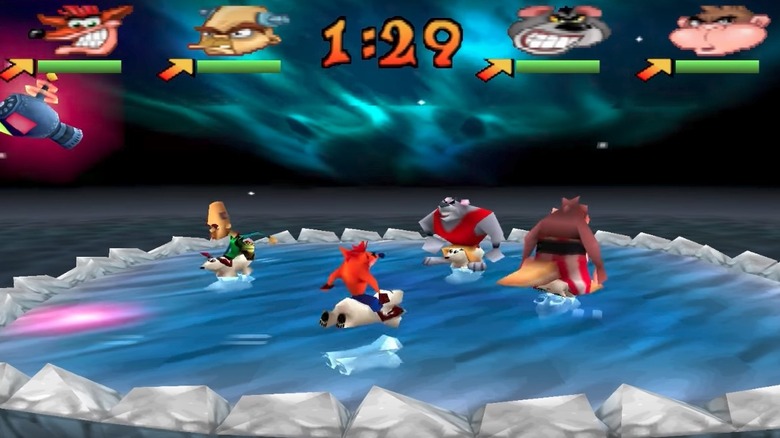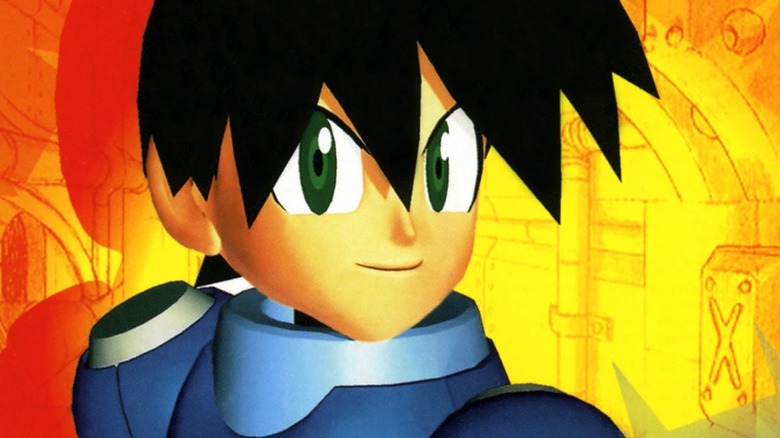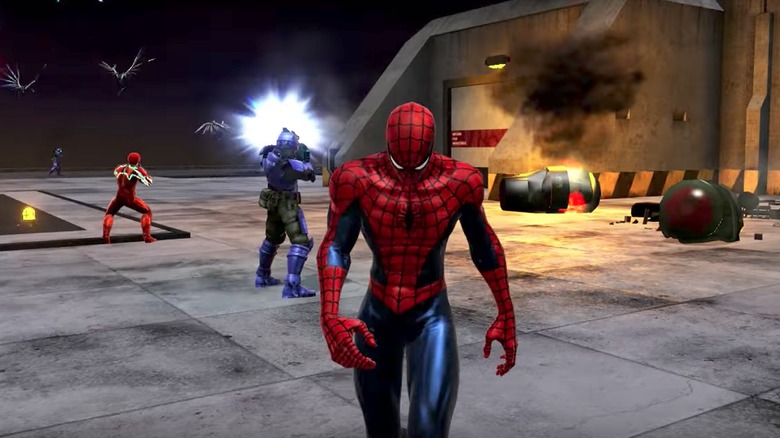Critically Hated Games That Are Actually Awesome
Playing video games is an expensive hobby, so reading game reviews can be an excellent way to get the most bang for your buck. Still, while there are plenty of times when a game's reviews offer an accurate reflection of its quality, there are occasional gems that slip through the cracks. Here are some of our favorite critically hated games that are actually awesome.
Mister Mosquito
While other surreal, Dadaist games have found some success within the medium, some are simply too absurdly weird to receive anything close to a good critical response. This might have been the problem for Mister Mosquito for the PlayStation 2, a game in which the player plays a mosquito desperate to suck the blood from the Yamada family in order to survive the winter.
Gameplay was focused around individual rooms of the house as players had to cautiously suck blood at certain moments of the Yamadas' routines, taking care not to be seen. Here comes the strangest part: If the victim notices you, you enter into a "boss battle" of sorts, where you have to attack certain pressure points on their body to force them into relaxing and ignoring you again. It was a little bit like the plane battle at the end of King Kong, only if after being dive-bombed enough times, Kong just got tired and went back to doing homework.
The game only managed a 65 Metacritic score, but it's hard not to be charmed by its unique level design and play style. One particular level involves the player timing their bloodsucking in between someone's workout, scored to a hazy, copyright-proof version of the Rocky theme song. When a game is this bizarrely innovative, it's definitely worth a play.
Kirby Air Ride
Kirby Air Ride became a genuinely beloved cult hit on the GameCube system for years after its release. As to why critics were so turned off by the gameplay, it's anyone's guess, since the most common complaints are borderline incomprehensible to anyone that's actually played. While reviewers (like Matt Casamassina at IGN) complained that the game was "simple and... devoid of depth or challenge," they may have missed the forest for the trees.
While the game does have an incredibly simplistic control scheme (just the control stick to move and the A button for using power-ups and braking/drifting), the negative reviews ignore just how incredibly fun it can be as a party game. It's hard not to get any group of players, of any video game experience level, immediately invested—the short time limit on game matches and low barrier for entry makes Air Ride addictive. Plus, the City Trial multiplayer mode, in which you dash around a city fighting over power-ups and specific gliders, is incredibly engaging.
Digimon World 3
Digimon has always been the ignored little sibling of the earth-shatteringly popular Pokémon. The Luigi to Pokémon's Mario, the Ken to Pokémon's Ryu, Digimon has always been the eternal second-best monster collector franchise. Still, Digimon World 3 ranked low even among the various games in the perpetual underdog's franchise. Part of that has to be the decision to change the core game design to incorporate a skewed isometric view, turn-based one-on-one combat, and a limited team of Digimon that you could use in battle.
Sound familiar? It's a Digimon game very much in the vein of Pokémon games, and that might have been the reason for the negative reviews. But underneath the Pokémon ripoff that so many reviewers saw is a surprisingly enjoyable RPG with solid sprite-based graphics for the time period and a denser combat system than most RPGs were offering.
Yu Yu Hakusho: Dark Tournament
Fighting games are generally a tough genre for developers. Street Fighter set many of the rules and conventions that they're expected to live up to; try to re-invent the wheel, and you might find fans chafing at the unfamiliarity, but follow the conventions too closely, and you're basically just making a copy that's probably worse. It gets even tougher for anime tie-ins that have to create an engaging adaptation of fans' favorite properties without alienating the hardcore fighting game aficionados.
Maybe that's the reason Yu-Yu Hakusho: Dark Tournament was so maligned in the critical sphere. As a competitive game in the vein of Street Fighter with hundreds, even thousands, of useful game mechanics and strategies, it's a failure. But as a single-player fighting game for fans of the series, it's surprisingly fun. The game follows the arc from the anime, and players can play as any of the 25 characters from the show, with their unique combos and special moves.
Part of the fun is learning a ridiculously long set of button presses that can destroy an enemy in one or two variations, and while that might not work on the competitive scene, it's incredibly enjoyable to decimate the computer (or an unlucky friend). Maybe the poor reviews were ultimately due to critics' high standards for a fighting game, rather than an engaging adaptation of an anime.
Yu-Gi-Oh! The Falsebound Kingdom
Yu-Gi-Oh games have been in a difficult spot for years. The show and manga are generally focused on the actual card game, with long-codified rules and gameplay—not the sort of stock that video game franchises with multiple sequels are made of. As a result, Yu-Gi-Oh games have either stuck with direct adaptations, slight variants (like Yu-Gi-Oh! War of the Roses, which added a game board mechanic), or completely original gameplay using the same characters and monsters.
Yu-Gi-Oh! The Falsebound Kingdom is an example of the latter, utilizing a mix of real-time combat with RPG elements, allowing players to command "Marshals" who controlled three unique monsters that could be upgraded and equipped with items. Random monsters could be found in the wild like Pokémon or stolen from other Marshals, all while the player attempted to destroy the opponent's main castle, a little bit like Age of Empires or Civilization.
As to why the game landed at a 44 Metacritic score, it's anyone's guess. The game might have been too disconnected from the precedents set by previous Yu-Gi-Oh titles, or maybe it was the lack of multiplayer capability; regardless, the single player mode is definitely worth a play.
Nier
While each generation of consoles boast improved graphics and hi-res animations, the eternal search for photorealistic visuals in video games have left some incredible games by the wayside. That's about the only reason we can think of for Nier's poor reviews.
The game is a third-player action RPG, in which you play a grizzled old warrior searching for a cure to the disease that's infecting his daughter, team up with a few other characters, and fight henchmen and boss monsters while putting time aside for the requisite fetch quests and fishing minigames. That synopsis might veer toward the well-trod cliche, but Nier surprises the player with a rich narrative and gameplay that continually changes by the level.
With the years since its release softening the rough edges of the graphics as they were seen by then-contemporary audiences, this title has aged shockingly well. If you're looking for a game that jumps from action RPG to text-based adventure to 3D Breakout, you can't go wrong with Nier.
Batman: Rise of Sin Tzu
It might be hard to imagine, but there was a time—before the Batman: Arkham Asylum games were released—when there just weren't good Batman games. In fact, there were so many bad Batman games that people just naturally assumed Batman: Rise of Sin Tzu would be bad as well. That's our closest guess as to why this beat-'em-up game was so completely written off by critics.
The graphics were a solid adaptation of the visual style used for Batman: The Animated Series and The New Batman Adventures, and the opportunity to play as Nightwing, Robin, and Batgirl in co-op mode is still unique. The combat is fun and easy, and while the main villain Sin Tzu (created by artist Jim Lee as a new character for the game) ended up being so unpopular he was never seen again, that doesn't dull the genuine pleasures of this short and satisfying game.
Crash Bandicoot: Crash Bash
Crash Bandicoot's Crash Bash title is unfairly maligned. Part of it is the fact that it begs comparison to the games in the Mario Party series, which are stone cold classics, but Crash Bash holds its own.
Players can play as characters from previous Crash Bandicoot titles as they compete to decide which is stronger, good or evil. The minigames are varied and surprisingly deep, once players figure out the baseline strategies, and like many of the games on the list, Crash Bash comes alive in multiplayer mode.
A wide variety of minigames and the opportunity to play with all four players (a rarity on the PlayStation console) meant Crash Bash was always going to be a co-op experience over single player. In fact, the biggest flaw of the game might be all the lost friendships from players betraying their alliances too early during a round of Polar Push.
Mega Man: Legends
Some of the games on this list suffered from poor marketing, high expectations, or just myopic reviewing. Mega Man: Legends, however, has no explanation at all for its awful Metacritic score of 59. The game has shockingly good graphics and character designs for the time period, and the combat customization keeps the gameplay fresh throughout.
It's a bit of a departure from previous chapters in the series, both in gameplay and story, but it wears its franchise history on its sleeve. Power-ups, supporting characters, and even store names all call back to the long continuity of Mega Man games, while the 3D environment allows for a gratifying spin on classic boss battles.
There's no reason for critics to have hated this game. Don't believe the poor ratings—Mega Man: Legends is certifiably awesome.
Spider-Man: Web of Shadows
The marketing for Spider-Man: Web of Shadows focused primarily on the dark and gritty original storyline created for the game, and the ability to make good or bad decisions that changed the ending. This might have contributed to the PlayStation 3 version's 67 Metacritic score, since the game's defining quality is not the depth of its storytelling—it's a hodge-podge of Marvel characters and an entire city controlled by organisms hosting the symbiotic living material that makes up Venom.
But that same shallowness of story belies the undeniable thrill of seeing some of your favorite Marvel characters given almost egregiously veiny Symbiote costumes (A Venom-controlled New York ended up being such a compelling idea that Marvel's returned to it in its own comics a few times). Add in the visually awesome combat, branching moral pathways, and the always enjoyable web-swinging that's defined every solid Spider-Man game, and Web of Shadows starts to look pretty good.
Complaints about the story aren't exactly wrong. Spider-Man's "Bad" decisions are ridiculously evil (one choice is whether or not to rip one of his friends in half), but that's part of the fun. The game is a pulpy spectacle, and you'll be too busy doing spin kicks halfway up skyscrapers to worry about which parts of the game are written in character.

